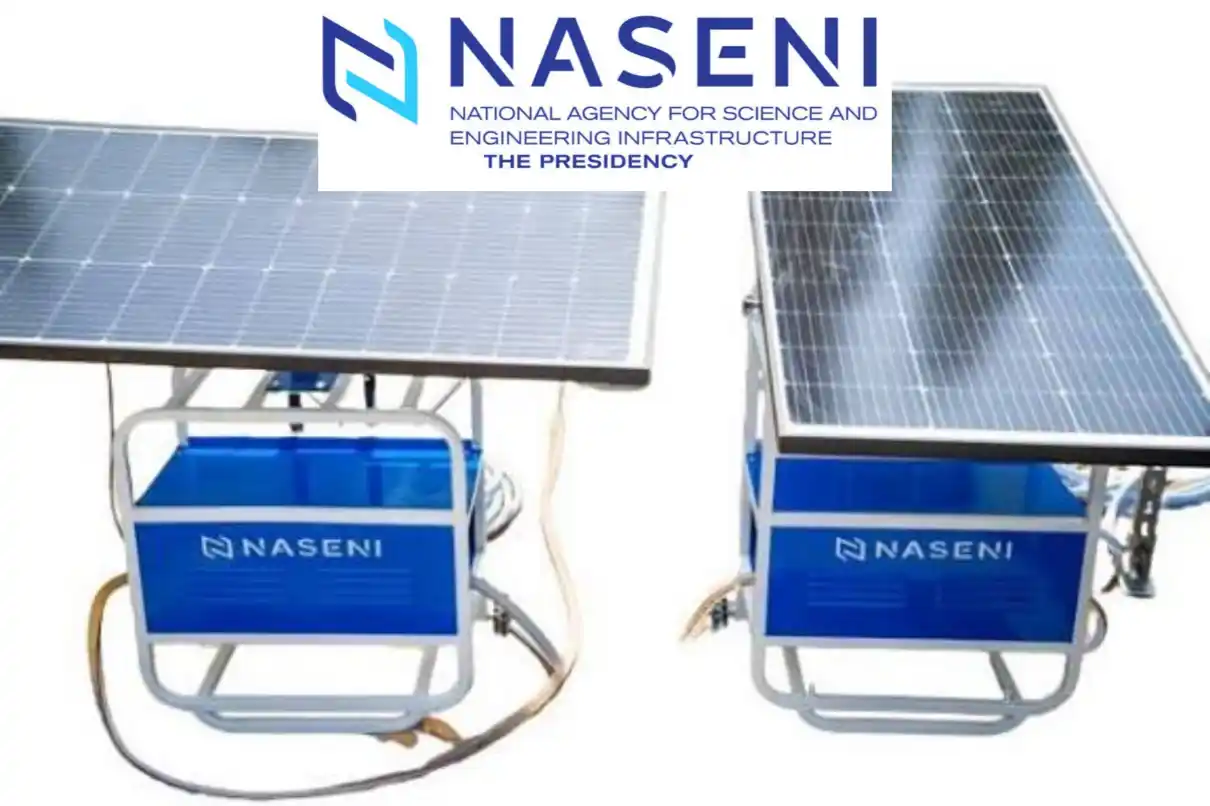Vice President Kashim Shettima, along with the Executive Vice Chairman and CEO of the National Agency for Science and Engineering Infrastructure (NASENI), Khalil Suleiman Halilu, and state governors, has endorsed NASENI’s Solar Irrigation System during the 152nd meeting of the National Economic Council (NEC) held at the Presidential Villa, Abuja.
The development brings hope to Nigerian farmers eager to increase crop production and income through the use of modern technology. NASENI has been playing a key role in transforming critical sectors of the economy, especially agriculture, by creating a technology-enabled environment for farmers to thrive.
The introduction of NASENI’s solar-powered irrigation pump is expected to revolutionize agriculture by ensuring consistent water supply for crops. The solar irrigation pumps are cost-effective, sustainable, and reliable, helping farmers achieve higher yields and multiple harvests annually. With this system, farmers will depend less on unpredictable rainfall, thereby reducing the risk of crop failure. It also eliminates the need for diesel or petrol, cutting down greenhouse gas emissions and air pollution while working efficiently in areas without grid electricity.
Compared to petrol-powered irrigation pumps, NASENI’s solar pumps will increase productivity, reduce operational costs, and boost farmers’ incomes. The innovation has been tested and proven effective, prompting more farmers to request its nationwide deployment. This aligns with President Bola Ahmed Tinubu’s Renewed Hope Agenda, which prioritizes food security, job creation, and making Nigerian agro-products competitive globally.
During the 152nd NEC meeting, the Council approved the nationwide rollout of NASENI’s solar irrigation pumps ahead of the 2025 dry-season farming. This decision reflects NEC’s confidence in NASENI’s capacity to deliver homegrown, energy-efficient solutions to Nigeria’s food production challenges.
Khalil Suleiman Halilu praised the endorsement, saying, “The NEC’s decision is a strong vote of confidence in our ability to deliver energy-efficient, homegrown solutions that will boost food production, lower costs for farmers, and secure livelihoods. Special appreciation to President Bola Ahmed Tinubu for the continuous support, ensuring NASENI remains at the forefront of advancing his administration’s reforms on industrialization, technology transfer, and food security. Together, we are building a more resilient agricultural sector, harvesting more sustainably and unlocking infinite possibilities for Nigeria.”
To fast-track production and distribution, NEC directed the Minister of Budget and Economic Planning, Senator Abubakar Atiku Bagudu, to create funding plans for NASENI. This move strengthens NASENI’s role as a driver of President Tinubu’s Renewed Hope Agenda through industrialization and sustainable technology.
NASENI’s solar irrigation pumps reduce water waste, lower costs, and provide reliable renewable energy in remote areas lacking grid electricity. They also cut down labor demands and allow farmers to use extra solar power for other farm activities like lighting, drying, and water heating.
The investment in this innovation runs into billions of naira, but the benefits to farmers and the national food security policy are enormous. By utilizing free solar energy, the system will significantly cut irrigation costs while increasing crop yields and farmers’ earnings. It also reduces the physical burden of fetching water, a task often carried out by women, saving both time and effort.
Beyond supporting dry-season farming and crop diversification, the system is expected to boost economic growth through non-farm income opportunities. The Federal Government has allocated ₦826.5 billion to the agriculture sector in the 2025 budget, with NASENI’s intervention standing out for its direct impact on farmers’ welfare and productivity.
NASENI’s wide agricultural programs give confidence in the success of this project. The agency operates the Agricultural Machinery and Equipment Development Institute (AMEDI), which focuses on modernizing agriculture by developing machinery, seed technologies, and promoting soilless cultivation like hydroponics.
Recently, the Kebbi State Government allocated ten hectares of land to NASENI for AMEDI’s establishment in Birnin-Kebbi. This is in line with the federal directive that each geopolitical zone should host at least one AMEDI center to boost agricultural development and create jobs for young Nigerians.
NASENI is also working with international organizations to expand its impact. Collaborations with United Nations agencies, including the International Institute of Tropical Agriculture (IITA) and the United Nations Industrial Development Organization (UNIDO), are helping to promote climate-smart agriculture and enhance sustainable food systems.
These partnerships aim to improve technology transfer and agricultural productivity in Nigeria, with plans to extend cooperation to West Africa through ECOWAS and the African Union.
In a country where food shortages and malnutrition threaten millions, the nationwide rollout of solar-powered irrigation pumps marks a significant step toward food security and agricultural growth. This initiative positions Nigeria to lead regional agricultural development across Africa.

